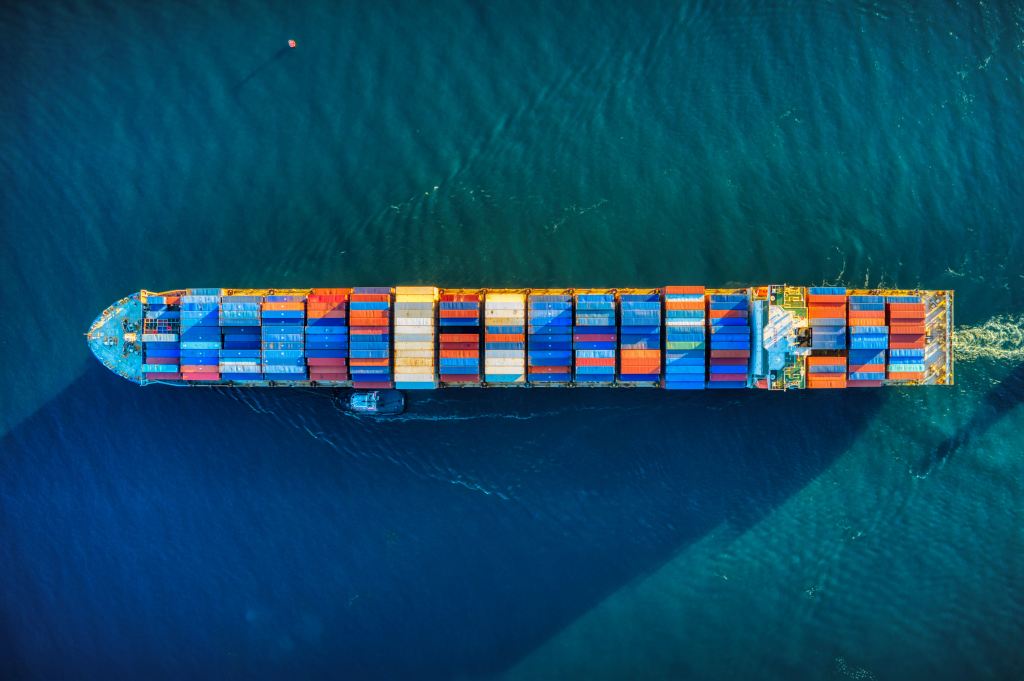Katie Daughen, head of Brexit research and support services at the British Irish Chamber of Commerce, assesses the economic risk which Brexit poses to Ireland. She argues that Brexit is especially dangerous for the UK-Irish relationship, and that businesses in both countries need to work together during the negotiations to ensure their interests are represented.
From a British and Irish business perspective, Brexit has the potential to be one of the most disruptive events for trade and business of the post-industrial age. In the immediate aftermath, it has been Irish businesses that have suffered most, although many economists agree that the UK economy is likely to start feeling the effects in the New Year.
The UK is Ireland’s largest two-way trading partner, supplying 34% of Ireland’s imports and taking 16% of Ireland’s exports. Ireland is the UK’s fifth largest export market. Any disruption to how trade is conducted between these islands is going to have an effect on both our economies. In a recent survey of UK and Irish businesses by the British Irish Chamber of Commerce, 88% of respondents said that Brexit will affect their business, with the majority saying that it will do so for the worse.
The negative effects are already being felt by some. The collapse in the value of sterling has been particularly challenging for the agri-food sector in Ireland. This is Ireland’s largest indigenous industry and has provided one of the first casualties of Brexit. The sector exports 41% of its product to the UK making the UK its largest single market. The mushroom industry has been found to be especially exposed due to its tight margins of operation and the decline in sterling has already led some farms to close up shop. The beef industry is also facing huge challenges with producers down €200 per head of cattle since June.
On the flip side, the resilience of the UK economy to date has surprised many and has reinforced some Brexiteers’ belief that ‘Project Fear’ was really just that, and that leaving the EU can be done with little negative effect on the UK’s economy. This false sense of security risks blinding people to the real dangers and challenges that lie ahead.
Despite an ostensible surge in exports, the UK’s considerable dependency on imports means that even a sterling collapse by nearly 20% still couldn’t thwart a widening of the UK’s trade gap. The immediate concern, therefore, is the imminent passing on to UK consumers of euro-driven price increases that UK businesses are now beginning to suffer, following a temporary delay due to short term hedging and existing inventory.
In addition to this, with no clear plan for negotiations emerging from Westminster, business in the UK now fears a real danger of what has been termed ‘cliff risk’. This refers to the possibility that that the UK will be unable to secure some arrangement with the EU by the time the two year deadline set by Article 50 runs out. Most observers agree that the UK’s new trading relationship with the EU is unlikely to be finalised within the two year timeframe and failure to arrange stopgap measures could result in the UK having no provision at all for its global trading rights.
Ireland and a hard Brexit
While this will no doubt have a serious effect for British trading, it will also have a substantial impact on Ireland and the trade between our two islands. The Economic and Social Research Institute (ESRI) has calculated that a 1% fall in UK GDP correlates to a 0.3% fall in Ireland’s. So, should the UK opt for a hard Brexit, as seems increasingly likely, the most likely outcome will be a reduction in the GDP of both economies. In this scenario it’s also possible that the UK could be forced to trade with the EU on WTO terms while it negotiates new trade deals, an outcome that could also have very negative consequences for the Irish economy.
Ireland is uniquely exposed because of its dependency on the UK market for its exports and the corresponding risks of any reintroduction of tariffs. A recently published paper by the ESRI identified Ireland as the EU country most reliant on the UK market. Should trade between the UK and the EU be based on WTO tariffs post-Brexit, Ireland stands to lose 30.6% of its export trade to the UK, leading to a 4.6% loss of its overall export trade.
Business reacts much faster to change than politics can. Even businesses not immediately affected by sterling’s fall are facing the greatest enemy of investment and job creation: uncertainty. Given the vast array of uncertainties surrounding Brexit, in terms of market access and trading costs, many businesses in both the UK and Ireland are already activating contingency plans. The priorities now for business in both markets should be to protect themselves against downside risk and to consider how best to benefit from some of the opportunities that will arise.
Finding opportunity amidst the uncertainty
In Britain we see many financial services providers planning on the basis that they now risk losing their EU ‘passporting’ rights. Consequently, they are considering options that will allow them to maintain access to EU markets when the Article 50 negotiations conclude. The British Irish Chamber of Commerce (BICC), where I work, argues that, as the only English-speaking, pro-business, euro-denominated gateway to the EU, Ireland is an attractive alternative for those firms that now need to relocate. Ireland already has a well-established financial services sector and has long acted as a mid-point linking the US and European financial services markets. Furthermore, the BICC believes in the continued strengthening of trade between our two economies, to the benefit of all.
Those Irish businesses dependent on exports to the UK should, in the short term, be looking to do business with more UK customers, offsetting reduced margins through increased volume. While developing alternative markets is a smart and prudent step, this will take a considerable amount of time and learning. In the meantime Irish business should be looking to their nearest and most easily accessible market for the answer. It might also be prudent for some businesses heavily reliant on the UK market to secure a base within the UK to protect themselves and avoid potential tariff and non-tariff barriers, and to replace euro costs with sterling, aligned with sterling sales income.
With the triggering of Article 50 looming in the not too distant future, the BICC feels that there is a role for business to play in supporting our governments as they enter into long and complicated negotiations, on a scale unprecedented in our generation. Business on both islands need to come together and work constructively with both governments to ensure that all is done to protect the jobs, security and wellbeing of all our people. Our communities, and our businesses, are joined at the economic and social hip, and while Brexit will make our relationship more challenging, it will certainly not end it. We should now be looking to make the big strategic choices that change allows – and requires – us to make, together.
Finally, business needs to examine why the UK voted to leave the EU. It is a worrying trend that people have begun to blame globalisation and trade for their being less well off, for it is through the economic and trading ties on which the EU was built that Europe has experienced its most sustained period of peace and prosperity in modern history. However, to the extent that people feel that they have been left behind and without a voice as a result of trade, it is up to business and politics to listen to these concerns and to work together to address both the reality and the perception, so that all can prosper.
Katie Daughen is head of Brexit research and support services at the British Irish Chamber of Commerce.
Note: The views expressed in this post are those of the author, and not of the UCL European Institute, nor of UCL.
This article first appeared on openDemocracy as part of the UCL European institute’s guest week.





Leave a comment